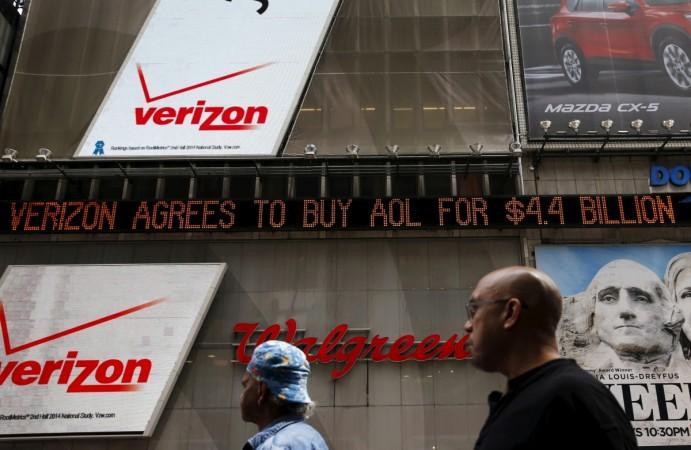
Verizon Communications Inc (VZ.N) and unions representing nearly 40,000 wireline workers have reached a tentative deal "in principle" to end a strike that started April 13th, U.S. Secretary of Labor Thomas Perez said on Friday.
Shares in Verizon, the No. 1 U.S. wireless company, jumped as much as 1.2 percent after the announcement and in afternoon trading were up almost 1 percent at $50.61.
Workers that included network technicians and customer service representatives in the company's Fios Internet, telephone and television services walked off the job after contract talks hit an impasse. The action was called by the Communications Workers of America and the International Brotherhood of Electrical Workers.
The parties are drafting an agreement that will be submitted to the unions for ratification and workers are expected to be back on the job next week, Perez said in a statement.
Terms of the agreement have not been disclosed.
Sticking points in the contract negotiations had included job relocations, offshoring call-center jobs, pensions and healthcare coverage.
The tentative deal ends the potentially costly and sometime-contentious 44-day strike. The workers had been without a contract since their agreement expired in August and had been without healthcare coverage since May 1.
The last contract negotiations in 2011 also led to a strike that ended after two weeks as contract talks continued.
Union workers interviewed on Friday said they were relieved by the news of the tentative pact, but still remain wary as the deal terms are undisclosed.
"(The strike's) been a burden on my family and myself," said Fitz Boyce, 45, a Verizon field technician, who has been protesting outside Verizon's Times Square store in New York since the strike started.
Verizon has agreed "to add good union jobs on the East Coast," the CWA said in a statement.
The agreement is consistent with Verizon's "objective of creating high quality American jobs," the company said in a statement.
Verizon and union representatives had been in contract discussions mediated by the U.S. Department of Labor, after Perez, in mid-May, brought both parties back to the negotiating table.
The work stoppage at Verizon stretched across several U.S. East Coast states, including New York and Massachusetts. Verizon said it had trained managers and thousands of non-union employees over the past year to ensure that service would not be disrupted.
Company executives have hinted in recent weeks that the strike could pressure the bottom line, without providing details. Chief Financial Officer Fran Shammo said at a conference earlier in May that new installations and orders had "significantly dropped." [L2N18L1GL]
Since the strike started the workers picketed outside Verizon stores and a handful of conferences attended by company executives. The strike, one of the largest in recent years, drew the support of Democratic U.S. Presidential candidates Bernie Sanders and Hillary Clinton.
Verizon has shifted its focus in recent years to new efforts in mobile video and advertising, while scaling back its Fios TV and Internet service.
The company has stopped expanding its old landline phone network and the wireline unit generated about 29 percent of company revenue in 2015, down about 60 percent since 2000, and less than 7 percent of operating income.








